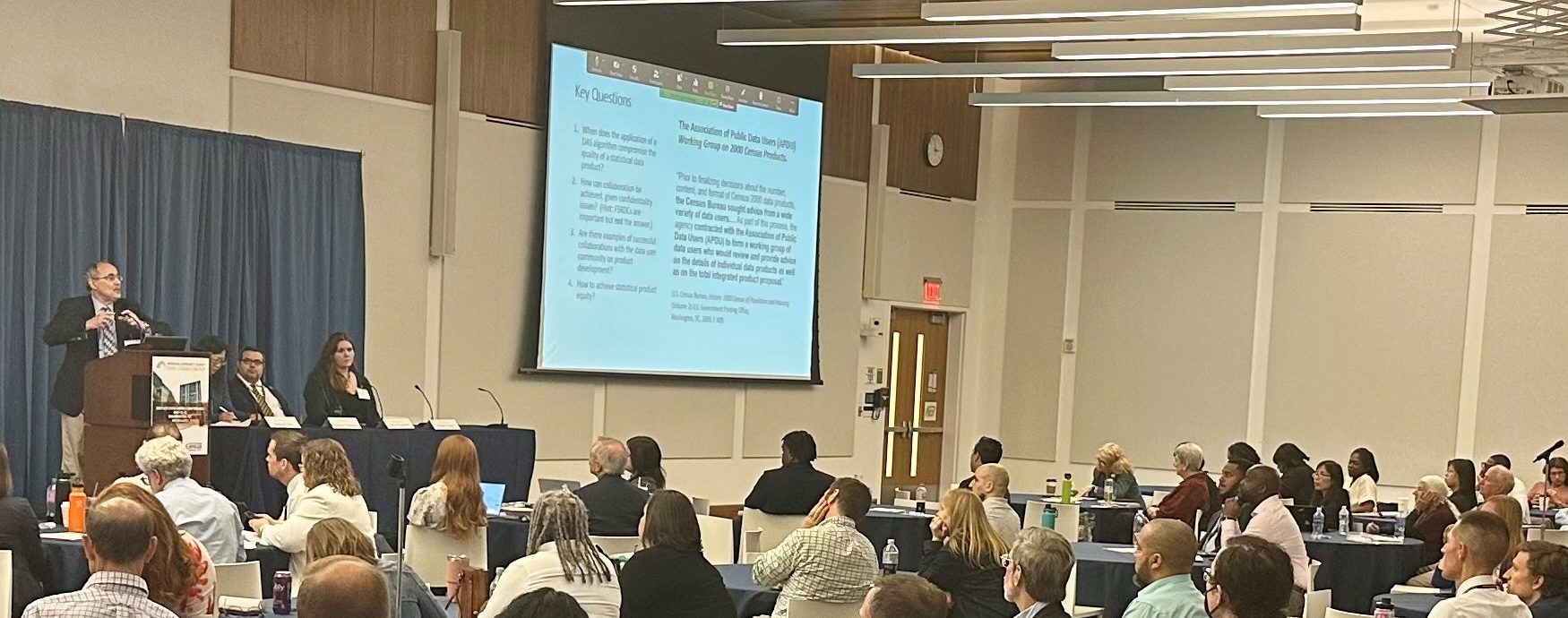Raquel Wojnar
Communications Manager

June 23, 2023
Communications Manager
A record 1,010 people registered for the sixth ACS Data Users Conference, a biannual gathering of practitioners who use data from the U.S. Census Bureau’s American Community Survey (ACS) in their work.
The conference, organized by PRB and the Census Bureau, kicked off May 16 at American University Washington College of Law in Washington, D.C. Census Director Robert Santos, who has worked in survey design and statistics for more than 40 years, delivered opening remarks.
“The ACS is an absolute national treasure,” Santos said. “It tells us who we are as a nation, and especially in all of our rich diversity.”
The event brought together both expert and novice data users, including employees at federal, state, and local governments and nonprofits in demography, economics, health care, and housing. The first discussion, on ways to improve the quality of the survey data, featured Sallie Ann Keller, Chief Scientist at the Census Bureau; Elizabeth Poehler, head of the Census Bureau’s Enumeration and Requirements Branch; and Amy O’Hara from Georgetown University’s Massive Data Institute.
Denice Ross, Deputy Chief Technology Officer at the White House, spoke about the federal government’s work using data to drive more equitable outcomes in communities. Census Bureau Statistician Rolando Rodriguez, Leslie Reynolds of Cornell University, and Joe Salvo of the University of Virginia discussed the challenge of protecting respondent privacy when collecting and working with ACS data.
May 17 and 18 featured virtual sessions on wide-ranging applications of ACS data, including measuring child well-being, poverty, and spatial inequality; housing analyses; and studying the effects of COVID-19.
The ACS is the largest household survey administered by the U.S. Census Bureau, and its data are used to allocate billions of dollars in federal funding, Santos said. It is recognized for its breadth and its ability to dip down into local areas, he added, giving decisionmakers a nuanced look at American communities.
Miss the conference? Watch all sessions on demand on our ACS YouTube playlist. For more, join the ACS Online Community to share messages, materials, and announcements related to ACS data and connect with other data users.
